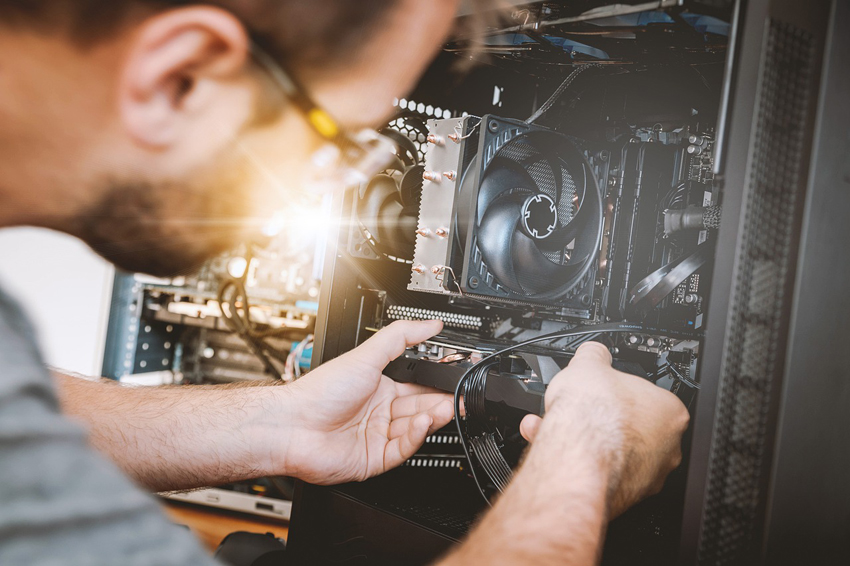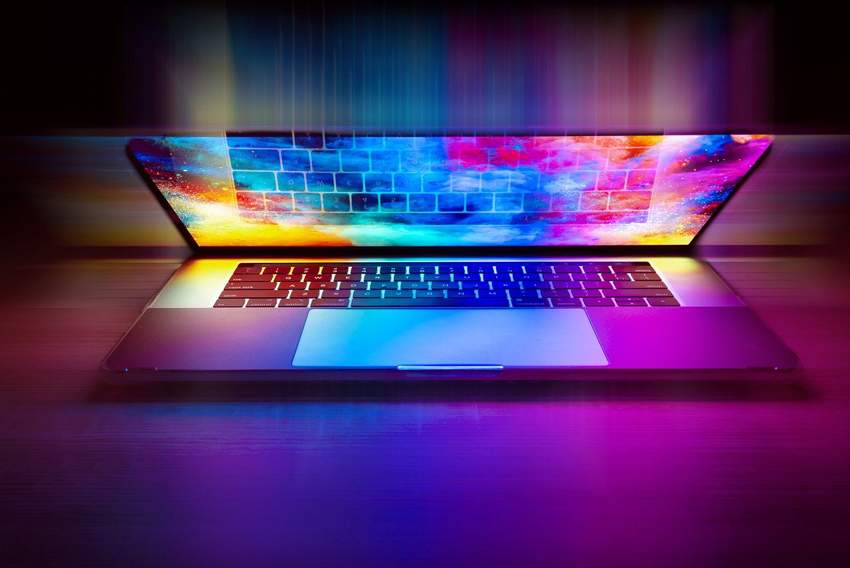You are oblivious to overheating issues
We all want computers to serve us forever. But if your PC crashes quickly, your habits may be to blame. Here’s what you should avoid to keep your computer running as long as possible.
Overheating is the mortal enemy of the computer. If it overheats, the processor can slow down, slow down to maintain an acceptable temperature, or even shut down completely. Continuous operation at high temperatures can also shorten the life of the processor, fans, and battery.
For desktops, the solution is fairly straightforward: make sure the chassis has enough airflow, enough vents and fans to get cooled air through the main components. Place the cabinet away from cramped cabinets and other places that trap heat.

Laptops need more attention. Their portability plays a cruel joke: they are placed on blankets or blankets, which blocks the flow of air, and sometimes the blanket completely closes the ventilation holes, which cannot be done.
Use the laptop on a flat surface whenever possible (the rubber feet lift it slightly off the table), or at least make sure there are no items on your lap that could block the flow of air. Otherwise, the same rules apply with laptops: do not leave them in high temperatures (for example, in a car on a sunny day) and blow out dust from time to time.
2. Don’t clean your PC
All computers accumulate dust over time, which causes components to heat up and fans to run more actively. While regular cleaning can help, it is primarily important to prevent dust and dirt from entering your computer.
For example, cigarette smoke and pet hair will exacerbate problems, and placing the system unit on the floor ensures more dust, hair and debris gets into the air intake. And if you have carpet on the floor, you are most likely blocking the supply fan of the power supply. If possible, place your computer on a table or stand and make sure your supply fans have filters.
if your PC crashes quickly, your habits may be to blame. Here’s what you should avoid to keep your computer running as long as possible.
Also, do not eat or drink near your computer, or at least be careful when you do. Getting crumbs into the keyboard is not only annoying but can damage the switches and make some keys harder to press. Not to mention spilled coffee on the laptop.
3. Your laptop is careless
Users often pick up laptops by the display, open the hinges on one side with too much force and throw them on the sofa on the opposite side of the room, otherwise they use a closed laptop as a stand. This can cause wear on the laptop hinge or a crack in the case.
And if your laptop uses a traditional hard drive instead of a solid-state drive, then when you toss or shake the computer, especially if the drive is active at this time, its head may move. Then you will regret not backing up your data.
4. Charging the battery incorrectly
Batteries run out over time and laptop autonomy decreases. To prolong battery life, it is best to discharge it to less than 0% and charge it frequently: the rule is about the same as for smartphones. If the battery is swollen, stop using the computer and replace the battery to avoid an explosion.
5. Ignoring electrical safety rules
Your computer consumes a significant amount of power and is at risk of power surges. Your PC’s power supply includes basic overvoltage protection, but it’s safer to protect it with a special device that needs to be replaced every three to five years. Keep in mind that surge protectors do not protect against high voltage surges (like lightning strikes), but they can help out with small voltage surges and extend the life of your PC.
You can even buy an uninterruptible power supply (UPS). This device contains a backup battery to prevent data loss on your PC in the event of a sudden power outage.
6. Don’t use antivirus
Common sense is valuable, but it should not be completely relied on to protect against malware. Even familiar sites can be infected with malware, and attentiveness will not always help. So use an antivirus on your computer.
Also, keep basic security practices in mind: keep your software up to date, use a reliable password manager, and learn to spot phishing. Do not use pirated software and protect your home Wi-Fi.
